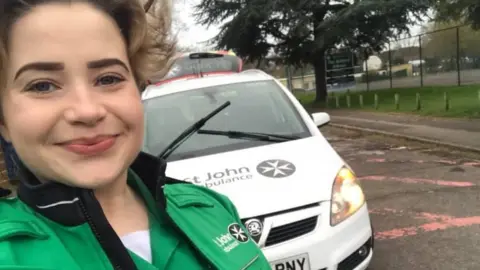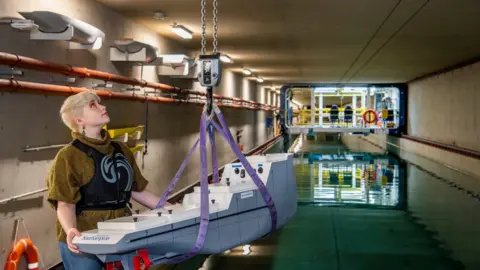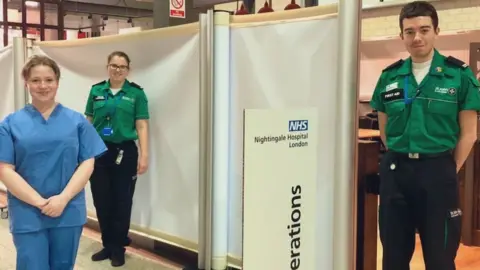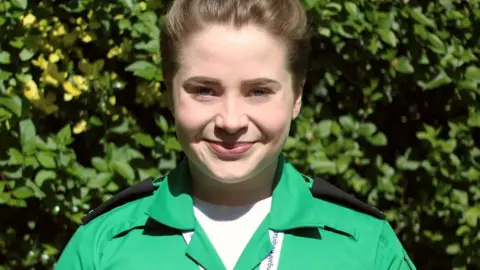Coronavirus: The first aider who became a Nightingale volunteer
 Mary Strutt
Mary StruttHundreds of thousands of people volunteered to help the NHS in various ways as the seriousness of the coronavirus pandemic became clear. One of them was shipping science student Mary Strutt, who never dreamed that signing up to the first aid society during fresher's week would lead to her working at the UK's first emergency field hospital.
"It was a lot to take in when I first entered the ward - there was constant beeping from all the machines, the PPE was strange to wear and you could tell the patients were not very well at all," said Ms Strutt.
"Whilst I was prepared, it was nothing like I had imagined."
The final-year University of Southampton student was already an experienced first aider for St John Ambulance, helping at public events such as football matches, marathons and festivals.
But her previous work was fundamentally different to duties in a hospital environment - especially one where the patients were so sick - and Ms Strutt admitted she felt apprehensive and nervous.
 University of Southampton
University of SouthamptonThe 22-year-old, from Buxton in Derbyshire, had been eager to help the NHS and applied to volunteer via St John Ambulance, filling out a form detailing her experience and willingness to travel.
She did not hesitate when she was invited to come to the Nightingale hospital in London's newly converted ExCel Centre.
"I got the confirmation late on Friday night that I'd be at the Nightingale on Monday," she said.
Ms Strutt remembered messaging her mum and sister with the news as she began preparing to spend a month away from the house she shared with three other engineering students.
Upon arriving in London, she was put up in a nearby hotel with other volunteers and NHS staff before undergoing two days of intensive training to get her prepared.
 St John Ambulance
St John AmbulanceMs Strutt was soon tasked with looking after patients who had just come off ventilators, taking basic observations, restocking equipment trolleys and most importantly, she says, talking to them.
"I would tell them about the weather, the leaves coming out on trees and my daily walks on my days off," she said.
"I absolutely loved it - I wouldn't like it when the new shift would come on because it meant I had to say my goodbyes to the patients."
Most of her shifts ran overnight between 23:30 and 09:30, leaving her feeling exhausted - but she said the support network from other volunteers and staff helped her through.
 St John Ambulance
St John AmbulanceShe said her month at the hospital, which has since been mothballed after a decline in intensive care demand for Covid-19 patients, has helped reaffirm her ambition to explore career opportunities in healthcare rather than in ship engineering.
"The whole experience has taught me a lot and has really changed my perspective on life," Ms Strutt said.
"Whilst before this experience I was questioning if I would retrain as a healthcare professional, I am now certain that this is what I want to do."

- SCHOOLS: When will children be returning?
- EXERCISE: What are the guidelines on getting out?
- THE R NUMBER: What it means and why it matters
- AIR TRAVELLERS: The new quarantine rules
- LOOK-UP TOOL: How many cases in your area?

